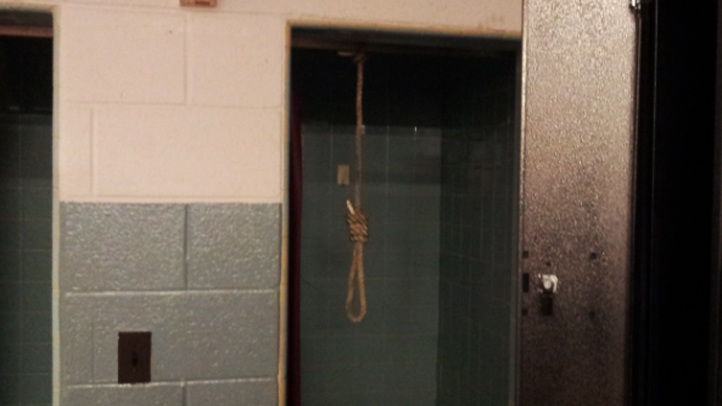A record producer who complained that he saw the head of a black baby doll on the antenna of an unmarked police car in Harlem was acquitted on Friday of charges that he had later obstructed the police and resisted arrest.
Before reaching their decision in less than 45 minutes, jurors heard the producer,
Clarence Jones, testify that police officers from the 25th Precinct had harassed him more than two years ago, in the days after he complained to
State Senator Bill Perkins and others about seeing the doll head. Mr. Jones said that when he confronted the white detectives about the doll's head, "they just laughed it off."
Mr. Jones's complaint stoked already tense race relations between community members and the Police Department. The police did not deny that there was a doll's head on the car's rear antenna, but they said that a review found no evidence that officers had placed it there. After he complained, Mr. Jones testified, officers pulled him over frequently and would drive by his building and wave their camera phones at him as if they were trying to photograph or film him.
Mr. Jones, 30, said he believed that the harassment culminated five days later, on July 27, 2008, when officers arrested him on East 116th Street and accused him of driving off while they were trying to issue him a parking ticket and of resisting their efforts to arrest him. Mr. Jones and his supporters said the charges were trumped-up and retaliation for his complaint.
On Friday, an elated Mr. Jones, who bowed his head and cried after the verdict was read, slightly backed away from that assertion.
"I don't want to blame it on the black doll head," he said outside the courtroom as he stood beside his lawyer,
Roger S. Wareham. "But it was something."
On the day he was arrested, Mr. Jones testified, he was in a store across the street when he heard the police announce on a loudspeaker that all double-parked cars needed to be moved. He jogged out to his car, he said, and a police car was alongside his, preventing him from moving. He said he knocked on the passenger window of the police car and told the officers that he did not want any trouble and just wanted to move his car. The officers did not say anything, Mr. Jones said, and the police car simply backed up.
Mr. Jones said he got into his car and drove away. But that account differed from the testimony of
Josip Sovulj, one of the arresting officers, on Thursday. Officer Sovulj said they had told Mr. Jones that they were giving him a ticket and to stay put.
Mr. Jones testified that he drove up the block after the officers said nothing to him and parallel parked in front of his apartment building on East 116th Street. But
Ryan Hayward, an assistant district attorney, said in his closing statement that the officers pulled Mr. Jones over because he had disobeyed their order not to move.
Mr. Jones said that as he began to step out of his car after parking, the police officers immediately grabbed him.
"They put some move on my wrist," Mr. Jones said, raising one hand and bending it at the wrist and twisting it with the other. "I'm getting kneed and elbowed. What made me start screaming for my mother is they started putting extra pressure on me — knees, elbows."
The confrontation left him with pain in his shoulder and jaw, and with a cracked tooth that had to be pulled, he said. "I put up no resistance," he said.
The prosecution contended that Mr. Jones had gotten out of his car and approached the officers after they pulled him over. When they tried to handcuff him, he struggled with them, the prosecution said.
Both of the charges against Mr. Jones were misdemeanors. Before taking the case to trial, the prosecution offered to let Mr. Jones plead guilty in exchange for no jail time. He refused.
"We just went with the truth," Mr. Jones said outside the courtroom. "That's why I took it to trial. I didn't just want to take a deal on something I had nothing to do with."

 when she first saw the drawings. Many other students jumped to the coonclusion the drawings were racially motivated because they were discovered a day after a tolerance rally on campus.
when she first saw the drawings. Many other students jumped to the coonclusion the drawings were racially motivated because they were discovered a day after a tolerance rally on campus. Members of the Student Anti-Genocide Coalition say they did the drawings -- and some chalk sketches on university sidewalks -- to call attention to genocide in the African country of Sudan.
Members of the Student Anti-Genocide Coalition say they did the drawings -- and some chalk sketches on university sidewalks -- to call attention to genocide in the African country of Sudan.







